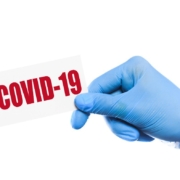Retirement saving options for your small business: Keep it simple
- Learn the advantages of a simplified employee pension (SEP).
- Learn about a savings incentive match plan for employees (SIMPLE).
- Identify if a SEP or SIMPLE plan may be right for your small business.
If you’re thinking about setting up a retirement plan for yourself and your employees, but you’re worried about the financial commitment and administrative burdens involved, there are a couple of options to consider. Fiducial is here to walk you through the differences between a “simplified employee pension” (SEP) and a “savings incentive match plan for employees” (SIMPLE).
SEPs are intended as an attractive alternative to “qualified” retirement plans, particularly for small businesses. The features that are appealing include the relative ease of administration and the discretion that you, as the employer, are permitted in deciding whether or not to make annual contributions and employers can choose the percentage of compensation for the contribution if it is decided to make a contribution. Also, SEPs are generally less expensive to administer.
Simplified Employee Pension (SEP) Involves Easy Setup
If you don’t already have a qualified retirement plan, you can set up a SEP simply by using the IRS model SEP, Form 5305-SEP, and going to a financial institution that provides trustee services. By adopting and implementing this model SEP, which doesn’t have to be filed with the IRS, you’ll have satisfied the requirements to establish and maintain a SEP. This means that as the employer, you’ll get a current income tax deduction for contributions you make on behalf of your employees. Your employees won’t be taxed when the contributions are made but will be taxed later when distributions are made, usually at retirement. Depending on your needs, an individually-designed SEP — instead of the model SEP — may be appropriate for you.
When you set up a SEP for your employees, you’ll make deductible contributions to each employee’s IRA, called a SEP-IRA, which must be IRS-approved. The maximum amount of deductible contributions that you can make to an employee’s SEP-IRA, and that he or she can exclude from income, is the lesser of 25% of compensation and $66,000 for 2023. The deduction for your contributions to employees’ SEP-IRAs isn’t limited by the deduction ceiling applicable to an individual’s own contribution to a regular IRA. Your employees control their individual IRAs and IRA investments, the earnings of which are tax-free until distributed to the employee.
There are other requirements you’ll have to meet to be eligible to set up a SEP. Essentially, all regular employees may elect to participate in the program, and contributions can’t discriminate in favor of the highly compensated employees. But these requirements are minor compared to the bookkeeping and other administrative burdens connected with traditional qualified pension and profit-sharing plans.
The detailed records that traditional plans must maintain to comply with the complex nondiscrimination regulations aren’t required for SEPs. Employers aren’t required to file annual reports with the IRS, which, for a pension plan, could require the services of an actuary. The required recordkeeping can be done by a trustee or custodian of the SEP-IRAs — usually a bank or mutual fund.

What is a Savings Incentive Match Plan for Employees (SIMPLE)?
Another option for a business with 100 or fewer employees is a “savings incentive match plan for employees” (SIMPLE). Under these plans, a “SIMPLE IRA” is established for each eligible employee, with the employer making matching contributions based on contributions elected by participating employees under a qualified salary reduction arrangement. The SIMPLE plan is also subject to less stringent requirements than traditional qualified retirement plans. Alternatively, an employer can adopt a “simple” 401(k) plan, with similar features to a SIMPLE plan, and automatic passage of the otherwise complex nondiscrimination test for 401(k) plans.
For 2023, SIMPLE deferrals are up to $15,500 plus an additional $3,500 catch-up contributions for employees ages 50 and older.
Contact your Fiducial advisor for more information or to discuss any other aspect of your retirement planning. Call Fiducial at 1-866-FIDUCIAL or request an appointment at one of our office locations to discuss your situation.
Do you know someone who might need our services? We love referrals!









